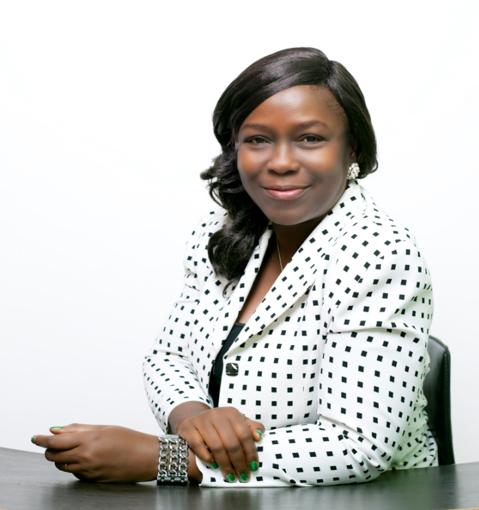Nkem E. Osuigwe works for the African Library and Information Associations & Institutions. She works as the Human Capacity Development and Training Director. Nkem shares her insights on the importance of social capital for libraries in this post. For Nkem’s contact information please see below in author details.
Social Capital
The world is becoming increasingly more interconnected. The possibilities of connecting, sharing and collaborating with people from all corners of the world are better than ever, as people ‘e-meet’ by viewing posts, liking and following on social media. Moreover, it is also becoming easier to deepen connections we have with colleagues, family and community members through the Internet.
Of course, we still meet and consolidate connections physically. These connections tend to be displayed in different forms. Connections could be circular- formed with people close to us and those in the same circles such as families and those we share the same culture with. They could be horizontal – bridges built as we hook up with friends, colleagues in the profession and former school mates wherever they are. Importantly, vertical connections could be made with people of upper or lower social status. These connections have great potential to be life-changing and of high value when they are undergirded with the principles of reciprocity, trust, collaboration and equity to build social capital.
OECD (Organisation for Economic Co-operation and development) has defined “social capital as the links, shared values and understandings in society that enable individuals and groups to trust each other and so work together.”[1] Taking it further, Arena (2019) posits that “social capital is the competitive advantage that is created based on the way an individual is connected to others.”
People have been known to secure jobs and access opportunities easily through their social networks. This is aided by the flow of information and reciprocity within such networks.
In these changing times, as libraries are facing varied challenges in many countries, librarians building more social capital for libraries is a crucial action to take.
Registration is open for the International Conference on Information Literacy (#ICIL) 2019. Take advantage of the early bird registration and book your seat before 30 June 2019.
Visit conference page to learn more: https://t.co/rG7Dmy6WIE @theNWU pic.twitter.com/BgbkGMaEpt
— AfLIA (@AfLIACon) June 19, 2019
Why?
Library advocacy is on the rise. IFLA was instrumental in creating a 2yr International Advocacy Program (IAP) for the inclusion of libraries into National Development Plans as agencies that provide access to information that is requisite for growth in all spheres of human existence. It ‘took’ in a number of countries while it is still a work in progress in others. For us to get the ears of those who can influence policies that will get Libraries a space on the table, we need as many voices as possible speaking up and standing for libraries. Being involved in networks and building social capital as a Librarian will draw the attention of more people to this.
Social capital is playing definitive roles as more and more causes and organisations crowdsource for resources including funding through online platforms. Quite a number of libraries have Foundations and volunteers that help them raise funds mainly within their communities. In these times of rapid changes, resources can be sought for libraries on larger platforms outside of known donors. This might become critical especially when donor-fatigue syndrome is identified. Social capital accumulated by Librarians could assist greatly to drive successful crowdsourcing for libraries.
In these times of rapid changes, resources can be sought for libraries on larger platforms outside of known donors. Share on XHow do we build social capital?
According to Marcus (2014), “a strong network is like money in the bank. Your network can help you build visibility, connect you with influencers, and open up doors for new opportunities”
“Libraries are social capital for great cities like Halifax” – New Canadian library includes 2 recording studios http://t.co/jCOyluDrYg
— Ian Anstice (@publiclibnews) May 6, 2014
How can libraries leverage on the social capital of librarians?
The more technology in society, the more need for community building, social capital, human interaction = public libraries #Dokk1 #libraries
— Rolf Hapel (@Hapelr) May 4, 2017
Time to get out of our silos. Start networking and building social capital. Libraries need it. Now!
Resources:
- OECD http://www.migration4development.org/en/content/oecd-insights-human-capital-what-social-capital
- Michael Arena https://www.hrexchangenetwork.com/people-analytics/columns/leveraging-social-capital
- Bonnie Marcus. https://www-forbes-com.cdn.ampproject.org/c/s/www.forbes.com/sites/bonniemarcus/2014/10/20/your-network-is-your-net-worth-7-ways-to-build-social-capital/amp/

Human Capacity Development & Training Director,
African Library and Information Associations & Institutions
P.O.Box BC 38, Burma Camp, Accra, Ghana.
Recent posts
Green Libraries: How Sustainable Design is Shaping the Future of Public Libraries
In this week's Princh Library Blog post, recurring guest writer Sam L. Bowman discusses an ever so important topic: sustainable design and [...]
Librarians Supporting Digital Literacy in the Community
In this week's Princh Library Blog, Nina Grant covers why digital literacy is important, the variety of ways in which librarians are supporting [...]




VERY INSIGHTFUL AND INTRIGUING . GLAD TO HAVE SIGNED UP . MADAM PEE WHY .. E LIBRARY / ARCHIVE CONSULTANT . LAGOS NIGERIA .